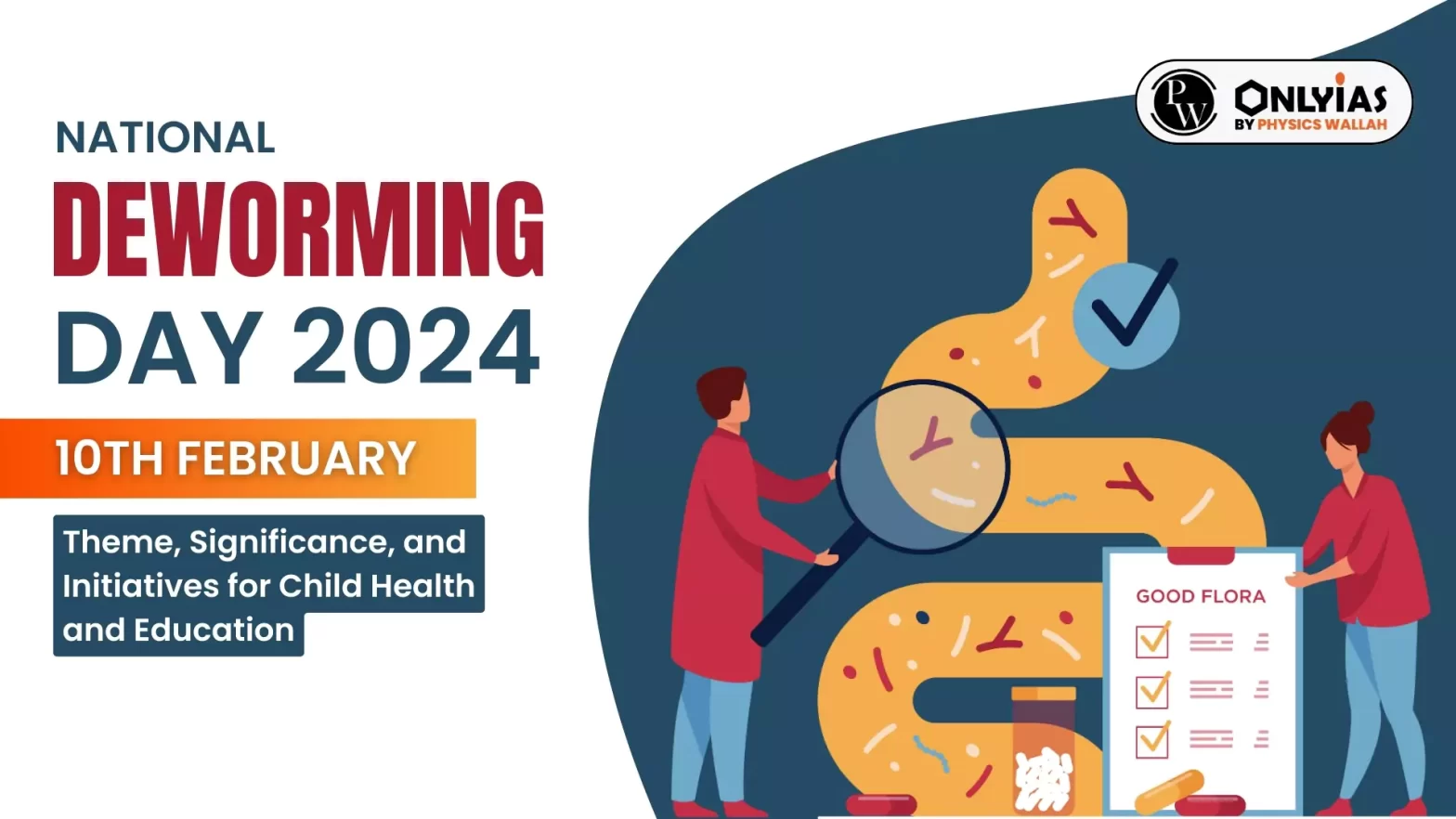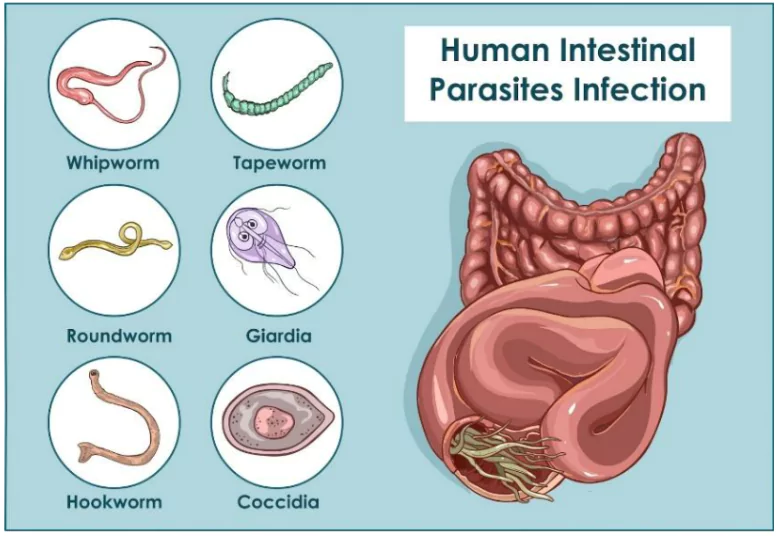Discover the significance of National Deworming Day & the battle against Soil Transmitted Helminths (STH) in India for child health & education.

The National Deworming Day is celebrated on 10th February every year across the country.

| Must Read | |
| NCERT Notes For UPSC | UPSC Daily Current Affairs |
| UPSC Blogs | UPSC Daily Editorials |
| Daily Current Affairs Quiz | Daily Main Answer Writing |
| UPSC Mains Previous Year Papers | UPSC Test Series 2024 |
The National Deworming Day is celebrated on 10th February every year across the country.
The National Deworming Day is an initiative to deworm all pre – schools and school age children (enrolled and unenrolled) between the ages of 1 and 19 years. Children across the country will be provided medicines to remove intestinal worms from their body system.
As part of the programme, Albendazole tablets (a deworming medicine) is given to youngsters on this day.
The Ministry of Health and Family Welfare is the nodal ministry to implement this programme.
The process of eliminating intestinal parasites, such as worms, using medication is termed as deworming. The process of deworming must be carried out two times a year, or every six months, beginning at the age of two years.
The number of children in India who are at a risk of parasitic intestinal worms is around 241 million of age groups 1 and 14 years.
Soil Transmitted Helminths (STH) or intestinal worms, are parasites transmitted from soil. They are a significant public health concern for India. Varieties include roundworm, whipworm, and hookworm.

<div class="new-fform">
</div>